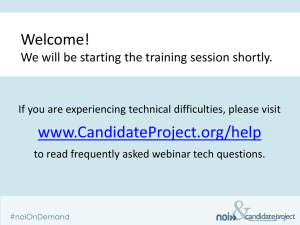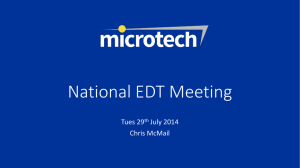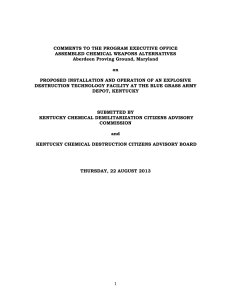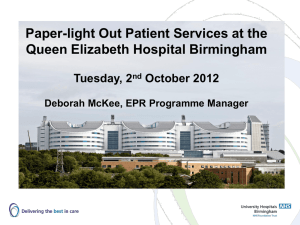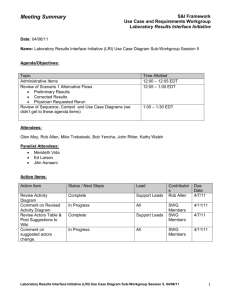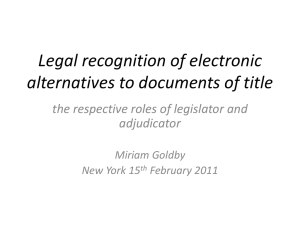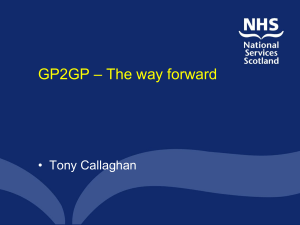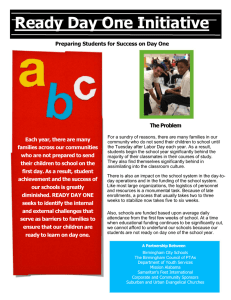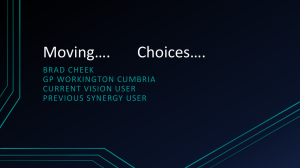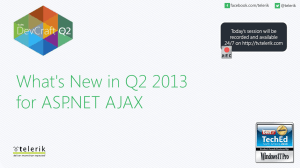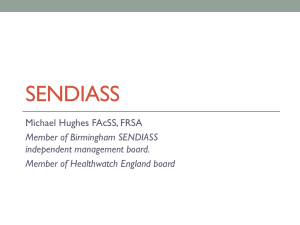An example of a paperless Trust
advertisement
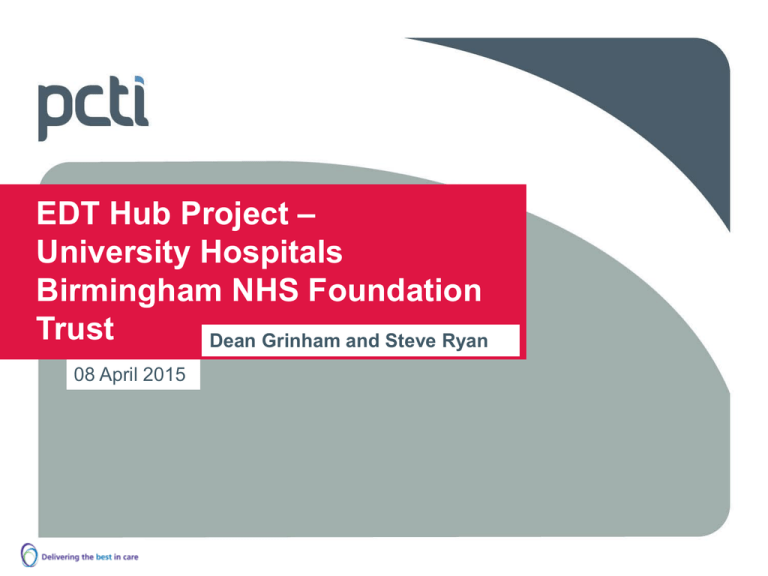
EDT Hub Project – University Hospitals Birmingham NHS Foundation Trust Dean Grinham and Steve Ryan 08 April 2015 Introduction - Queen Elizabeth Hospital Birmingham – University Hospitals Birmingham NHS Foundation Trust (UHB) is a leading university teaching hospital. – Staff of 7,500 people work across more than 40 disciplines. – On 16 June 2010 UHB’s new £545 million Queen Elizabeth Hospital Birmingham opened. It is the largest single site teaching hospital in Europe. It has 1,213 beds, 30 theatres and the largest single floor critical care unit in Europe with 100 beds. EDT project - Aims and Benefits • Patient Improve patient experience through fast transfer of clinical outcomes/care plans • Trust Achieve 24 hour turnaround of discharge letters to GP’s Improve time to communicate clinical information to GP’s Reduce admin costs associated with printing and posting letters Part of a wider trust EPR programme • Primary Care Improve turnaround time of correspondence Reduce admin costs and time associated with manual scanning #LoveDocman National Docman User Conference 2013 EDT project background • Project Sponsored by the Trust’s Chief Operating Officer • Under the umbrella of Trust’s wider EPR Programme • Procured EDT Hub in late 2009 • UHB IT Technical Development team work commenced: design, testing and implementation of document messaging from our EPR, Clinical Portal to EDT Hub – Clinical Portal Export Service (CPES) • End points (practices) and clinicians (GP’s) configured on EDT hub • Document sources identified: PICS Inpatient/Daycase Discharge Letters and all WinScribe digitally dictated clinical letters • 3 month proof of concept project commenced 2010 with local PCT (South Birmingham) and 1 Docman practice (Bournbrook Varsity) #LoveDocman National Docman User Conference 2013 EDT project background - 2010 to 2011 • Joint working continuing with PCT (now Birmingham and Solihull Cluster) IT Department • Further Docman practices enabled for EDT/configured on EDT hub • Other document sources identified and implemented: ED (A&E) Discharge letters, neurophysiology reports, PICS Outpatient letters • April 2010 – July 2011 Parallel running with printing and posting paper copies • July 2011 - No print processes developed and implemented in 3 Trust generating systems (DPM Digital Dictation workflow application /PICS system discharge letters, ED (A&E) Oceano system discharge letters #LoveDocman National Docman User Conference 2013 UHB – EDT Process – how it works Generating Systems PICS Winscribe Oceano (CSE) Medisoft Generating system delivers to designated export folder CPIS delivers it to trust Clinical Portal documentum repository Document in documentum CPES delivers it to EDT Hub if GP practice is EDT active ‘No Print’ flag – UHB reference table Document in EDT Hub GP Practices Documents deposited into various GP systems eg. Emis LV, Emis PCS, isoft synergy, System 1 , Vision(INPS) #LoveDocman DOCMAN EDT GP Practice collects documents from EDT Hub GP Practice can also view documents on the UHB GP Practice Page Non-EDT GP Practices receive and National Docman User Conference 2013 scan paper copies of documents EDT project background - where we are now • 71 live ‘end points’ in Birmingham and Solihull Cluster • 41 ‘no print’ practices • Approx 25000 documents EDT’d per month • Regional EDM (electronic document management) Board in place – chaired by CCGs, key stakeholders represented. • Further rollouts planned to other practices in wider Birmingham area and beyond – 250 potential end points #LoveDocman National Docman User Conference 2013 Challenges • Communication with GP Practices – At outset of project this was led and coordinated by the PCTs. – This year we are taking steps to improve direct communication between our trust and individual practices (necessary to manage expectations and respond to any issues) • Document Generating Systems – Ensure each system interfaces with no print capability – direct or via web services. – Enclosures/attachments and linked documents – manual workarounds are in place – Monitoring - reconciliation reports to ensure all documents created are sent via EDT #LoveDocman National Docman User Conference 2013 Challenges • Changing working practices regarding ‘no print’ – Mixed economy – multiple processes (some no print some still require prints makes it more difficult to implement a new process) • Support implications – Handling Rejections – duplicate printed copies and incomplete documents (attachments and enclosures) – Working with Trust Service Improvement Team, admin teams and local practices to improve document rejection rates. – Rejections – duplicate printed copies and incomplete documents (attachments and enclosures) #LoveDocman National Docman User Conference 2013 Summary – key points Significant Benefits Technical – must work with generating systems Communication with GPs #LoveDocman Support Implications Senior ‘buy in’ National Docman User Conference 2013
